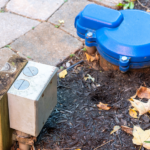
Are you ready to move out of your apartment and into your first home? Before you do, you should know that transitioning from renting to buying a home isn’t always a simple process. As a renter, you have probably become accustomed to only worrying about a few things: paying your rent on time, paying for your utilities, and keeping the place looking (mostly) clean. Everything else was taken care of by your landlord. However, as a homeowner, most of these responsibilities that the apartment landlord had will fall onto you. These additional responsibilities are accompanied by several other changes as well.
The Differences
- The Down Payment : When you are about to start a lease on an apartment, you are usually only required to provide money for the security deposit and first month’s rent. On the other hand, when buying a house, you will need to provide upfront money for several items: a down payment, appraisal, earnest money, private mortgage insurance, and more.
- Less Freedom to Move Around : With an apartment, the lease typically runs for only a year, with an option to renew. So, if work or other life events require you to move locations, it isn’t usually a problem. For a homeowner though, moving is often a long and strenuous process. This makes moving bothersome unless you have lived there for a few years.
- More Maintenance, More Responsibility : A home is a much larger space than an apartment and thus will require much more maintenance. Furthermore, as a homeowner, you are responsible for contacting and scheduling a repair for any appliance that isn’t working right. This is something that apartment owners are used to delegating to their super. You will also need to ensure that your entire home is in proper order, with no issues involving leaks, mold, or bugs.
Transitioning from Renting to Buying a Home
Now that you know the differences, there are a few steps you will need to take in order to prepare yourself to purchase a home.
- Research : Do research on the home buying process to see how much homes in your area cost, all the steps that will be involved, and if you will need any assistance throughout it.
- Get Your Finances in Order : The standards for being considered for a home are usually much higher than an apartment. You should have a high credit score and a low debt-to-income ratio.
- Mortgage Pre-Approval : While optional, getting pre-approved for a loan can tell you what you can realistically afford. This way, you won’t waste time looking at a home that is out of your price range.
- Budgeting : You can’t just drop everything and say that you’re going to buy a home tomorrow (unless you have won the lottery). This process requires a lot of planning namely budgeting in order to go smoothly. You should have plenty of funds saved up for the upfront expenses. You should also factor in all of the expenses that come with owning a home, such as:a. Monthly Mortgage Payments
b. Property Taxes
c. Utilities
d. HOA fees
e. Homeowners Insurance
f. Maintenance
g. Unexpected Expenses - Find a Real Estate Agent : Don’t hire the first real estate agent you come in contact with. Rather, do research, read reviews, and ask your peers for recommendations. You want to work with someone who is experienced, knowledgeable, and working with your best interest in mind.How can Lakeside Title help?While transitioning from renting to buying a home is no easy feat, it does come with numerous benefits. After all, it’s a great investment, has tax incentives, and builds equity, unlike renting an apartment. If you are serious about buying a home, consider Lakeside Title for all your title services. When you select Lakeside, you’ll work with a title agency offering cutting-edge tools to streamline your closing so it takes place on time. If you’re a home buyer, lender, or real estate agent who would like more information, please contact us today!




